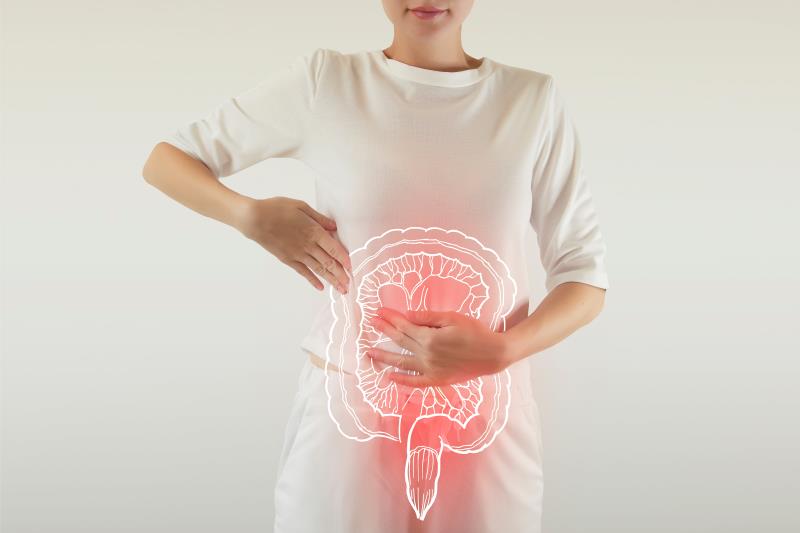
The anti-integrin vedolizumab is superior to the TNF inhibitor adalimumab for clinical remission and endoscopic improvement at 52 weeks in patients with moderately to severely active ulcerative colitis (UC), reveals the head-to-head VARSITY* trial.
While anti-TNF inhibitors have revolutionized the management of UC in the past two decades, about 50 percent of patients either do not respond to anti-TNF biologics or lose response over time, noted Dr Richard Farell of Connolly Hospital in Dublin, Ireland in a linked editorial. [N Engl J Med 2019;381:1279-1281]
“The considerable risk of infection … is an important concern, as are autoimmune and malignant complications,” Farell stated. “Despite an improving treatment landscape, long-term rates of colectomy for UC have not declined over 10-year period, a fact that highlights the need for new biologic therapies and strategies.”
Vedolizumab is a gut-selective humanized monoclonal antibody that binds specifically to the α4β7 integrin expressed on gut-homing leukocytes mediating inflammation.
In the phase IIIb, double-blind, double-dummy, multinational, superiority trial, 769 patients (mean age 41 years, 58 percent male) with moderately to severely active UC were randomized 1:1 to intravenous infusions of vedolizumab 300 mg** or subcutaneous injections of adalimumab 40 mg***. Previous exposure to a TNF inhibitor other than adalimumab was permitted (in 25 percent of patients) but dose escalation was not allowed in either group. [N Engl J Med 2019;381:1215-1226]
At 52 weeks, significantly more patients in the vedolizumab group achieved the primary endpoint of clinical remission# than the adalimumab group (31.3 percent vs 22.5 percent; p=0.006). The clinical benefit was particularly prominent among patients without previous exposure to anti-TNF therapy (34.2 percent vs 24.3 percent) compared with those who had (20.3 percent vs 16.0 percent).
Similarly, vedolizumab was superior to adalimumab for endoscopic improvement## at 52 weeks (39.7 percent vs 27.7 percent; p<0.001).
However, superiority was not demonstrated for corticosteroid-free clinical remission, which was achieved in 12.6 percent of vedolizumab-treated patients compared with 21.8 percent of adalimumab-treated patients (difference, -9.3 percentage points; 95 percent confidence interval [CI], −18.9 to 0.4).
The exploratory outcome of histologic remission at week 52 was consistent with the results of clinical remission and endoscopic improvement, regardless of whether this was evaluated using Geboes score <2.0 (10.4 percent vs 3.1 percent; difference, 7.3 percentage points, 95 percent CI, 3.8–10.8) or Robarts Histopathology Index score <3 (37.6 percent vs 19.9 percent; difference, 17.6 percent, 95 percent CI, 11.3–23.8).
Of interest, infections (23.4 and 34.6 events per 100 patient-years) and serious infections (1.6 and 2.2 events per 100 patient-years) occurred less frequently in the vedolizumab vs the adalimumab groups.
Ready for prime time?
“Although the VARSITY trial presents a head-to-head comparison of biologics for inflammatory bowel disease … any clinical superiority of vedolizumab should be balanced against the significant cost advantages of a subcutaneous regimen of adalimumab,” commented Farell.
To address the question of whether vedolizumab should replace anti-TNF therapies, Farell suggested that a head-to-head comparison of infliximab infusions vs vedolizumab infusions in patients without previous exposure to anti-TNF therapies.
“The cost-effectiveness of all biologics will have to come into sharper focus in future trials and longitudinal studies of biologics to help determine not only their eventual place in the treatment algorithm for moderate-to-severe UC, but also the true effect of existing and newer biologics on disease course and rates of colectomy,” he wrote.